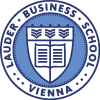EXTENDED ABSTRACT DEADLINE: AUGUST 31, 2016
Call for Contributions
European Microeconomics of Competitiveness Chapter – Conference on Business Ethics and Competitiveness in SMEs
Vienna, Austria, November 14-16, 2016
It is a pleasure to invite you to the 2016 European Microeconomics of Competitiveness Chapter Conference, titled Business Ethics and Competitiveness in SMEs. The conference is organized by FHWien University of Applied Sciences of WKW in cooperation with Lauder Business School and will take place in Vienna, Austria from November 14 to 16, 2016.
Conference theme
Many scholars and managers emphasize the importance of developing and implementing strategies, ethical standards, and governance structures that address environmental and societal issues. Such emphasis, however, often focuses exclusively on multinational corporations (MNCs) and large enterprises, with academic discussions largely centered on the corporate level and corporate sustainability (Engert et al., 2016; Spence, 2014). In the context of small and medium sized enterprises (SMEs), contributions analyzing social responsibility tend to concentrate on entrepreneurs and their (normative) motivations to engage in social issues (Spence, 2015; Fuller and Tian, 2006). A gap in knowledge and practice has arisen with respect to the possible relationships between environmental and social issues and SMEs, especially when it comes to strategic CSR initiatives and their impact on and implementation in small business strategies (Spence, 2016).
In their 2006 article “Strategy & Society,” Michael Porter and Mark Kramer pointed out that the CSR efforts of many firms do not fit their companies’ strategies, and that these efforts are sometimes counterproductive and seem to be uncoordinated, one-off activities. Their work, Creating Shared Value (CSV) (2011), which has earned a central place within the practical and academic discussion about engaging in societal issues, suggested turning society’s needs into business opportunities that strengthen a company’s competitive situation, while taking into account all stakeholders (even those previously left out). Although CSV has been applied to environmental and societal considerations in the context of many MNCs (e.g., Allianz, Nestlé or Unilever), there are few examples of it in the context of SMEs.
Academics in the field of business ethics remain skeptical about CSV, and it has been criticized in leading journals for its lack of novelty and underdevelopment in terms of application (e.g., Crane et al., 2014; Beschorner, 2013). Given the significance of Porter and Kramer’s concept, however, additional research can help to clarify and develop CSV in general and as it applies specifically to SMEs.
Conference aim
This conference aims to promote the exchange of knowledge, to share best practices, and to discuss the role of CSR and CSV in the context of SMEs and their competitiveness. Further, it aims to investigate and discuss academic contributions as well as practitioners’ examples and experiences (providing a platform for both), to present research results and practical cases (whether CSR or CSV), and to clarify whether and how SMEs can apply lessons learned by larger companies and MNCs. This event is of particular interest for academics, outstanding graduate students, practitioners, policy-makers and managers/business owners from small and medium sized or family-run businesses, and it will provide an opportunity to network and engage with an international panel of recognized speakers.
Keynote speakers
Prof Dr Laura Spence
Director of Centre for Research into Sustainability, Royal Holloway University of London
Marc Pfitzer, BA, MBA
Managing Director FSG
Call for abstracts
We invite academics and practitioners to submit their contributions in abstract form (max. 500 words). If accepted, the conference organizers will then request an extended abstract (max. 2.500 words) that describes the participant’s submission in greater detail. In addition, a special track for excellent graduate students and early-career researchers is planned. Although we appreciate all contributions that fit within the conference’s theme, we are particularly interested in research and practical examples focusing on the following:
- Theories on CSR / CSV in the context of SMEs
- CSR / CSV practices in SMEs
- Case studies of CSR / CSV in SMEs
- Comparison of CSR / CSV initiatives in SMEs in contrast to large / multinational enterprises
- Motives for implementing CSR / CSV initiatives
- Expansion of the CSR / CSV toolbox for SMEs
- CSR / CSV limitations and further developments
- Creating competitiveness through CSR / CSV in SMEs
- Local clusters, SMEs and shared value
- Entrepreneurship, competitiveness and local development
- Local competitiveness fostered through local institutions and entrepreneurship
Schedule and guide for submitting abstracts
August 31, 2016: Final day for submission of abstract (max. 500 words)
Mid-September 2016: Notification of acceptance
October 31, 2016: Submission of extended abstract (max. 2.500 words)
To submit your contributions or to register, please use the following LINK.
Call for attendance
We welcome all persons would like to attend the Conference but do not wish to submit an abstract or otherwise participate as presenters. The fee for such attendance is equal to that listed below.
Conference Fee
The conference fee is € 150. The conference dinner and all formal meals are included in this fee.
Schedule and venues
Day 1, November 14, 2016 – Conference Kick-off
6:00 p.m. Conference kick-off with keynote presentations and conference dinner.
Host: FHWien University of Applied Sciences, Währinger Gürtel 97, 1180 Wien
Link Google maps
Day 2, November 15, 2016 – Conference Business Ethics and Competitiveness in SMEs
10:00 a.m. Start of Conference
6:00 p.m. End of Conference
Host: Lauder Business School, Hofzeile 18-20, 1190 Wien
Link Google maps
Day 3, November 16, 2016 – Excursion to industry partner
10:00 a.m. Meeting at FHWien University of Applied Sciences Vienna.
4:00 p.m. End of Excursion (approx.)
A detailed program of the conference, including speakers and presentations, will be provided nearer to the event.
Organizing institutions and organizing committee
The conference is organized by FHWien University of Applied Sciences Vienna in cooperation with Lauder Business School.
The FHWien University of Applied Sciences of WKW (UAS) is one of Austria’s leading business school and offers a range of undergraduate and postgraduate management programs. The subject of business ethics and corporate governance has not only been firmly integrated into all curricula of FHWien’s study programs but has also been acknowledged in strengthening its research capacities in this field. The Center for Corporate Governance and Business Ethics (CCGBE) chairs the European chapter of the Harvard MOC network in 2016-17. The newly founded Center for Strategy and Competitiveness focuses on the creation of competitive advantages with a special focus on SMEs.
Lauder Business School (LBS) is a fully-accredited university of applied sciences located in Vienna. It offers English-language bachelor’s and master’s programs in the fields of business administration, management, banking and finance. People from over 40 countries are studying, teaching and working at LBS. The highly internationally profile of LBS’s academic activities and its culturally diverse campus prepare our students and graduates for international business careers. LBS’s alumni pursue successful corporate and entrepreneurial careers both in Austria and globally. LBS distinguishes itself as an international boutique business school with an excellent faculty-student ratio and student-centered applied learning methods. The Institute of Competitiveness (IoC) at LBS is the first of its kind in Austria. It serves as a hub for knowledge creation in the areas of competitiveness, entrepreneurship, and diversity.
Special Issue Call for Papers Creating Shared Value: Restoring the Legitimacy of Business (extended deadline)
We are pleased to announce a call for papers on the topic: Creating Shared Value: Restoring the Legitimacy of Business and Advancing Competitiveness. The special issue will be published in the Competitiveness Review, a journal that aims to be the leading platform for academic research and conceptual policy dialogue on the competitiveness of locations.
As detailed in the call attached or on the website, we seek novel empirical and theoretical contributions that explore the scope and impact of Creating Shared Value (CSV) as well as its limitations and possible enhancements of the approach.
The goal is to bring together a set of contributions that define the state of the art for CSV as a managerial framework and policy tool. In particular, the call is open to a variety of theoretical paradigms and commitments and methodologies. Potential contributors are encouraged to contact the guest editors with questions.
The submission deadline is August 15, 2016.
Markus Scholz (FHWien University of Applied Sciences), Gastón de los Reyes (George Washington University School of Business) and Marc Pfizer (FSG)


Recent Comments